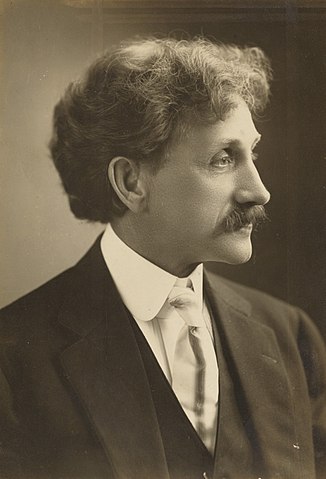Author Bibliography (in progress)
Moore, J. Howard (1862-1916)
BIOGRAPHICAL NOTE
 J. Howard Moore was born on 4 December 1862 near Rockville, Indiana. Moore is a cantankerous writer who takes issue with nearly everyone: fellow humans (he claims never to have met a “civilised” human being); Christians, Jews, and Muslims for spreading anthropocentrism; meat-eaters (obviously); wearers of fur, leather, feathers, wool; the less “civilised” races (generally speaking, Indigenous peoples) whom he considers barbarian (though, for Moore, “savage” does not mean “uncivilised,” but prehistoric humans); and Spaniards. That said, his argument in Universal Kinship is precisely that: a relationalist based, anti-speciesist argument in favor of treating all living beings equally, because they can suffer and they want to live, just as humans do. He argues that everything in the universe is connected and is in a process of evolution. He does claim that mankind is the most highly evolved of all animals but that status does not, he argues, give humans the right to abuse other beings for pleasure, sport, food, industry, agriculture, or any other purpose. He frequently references socialism and links the exploitation of workers and the “lackeys” of the aristocracy to the exploitation of nonhuman beings for agriculture and food. In this way, Moore also links war and blood sports to anthropocentrism, arguing that if humans are eating, they are fighting, or watching other beings fight. A vegan diet is, he claims, a thinkers’ diet (in New Ethics), citingTolstoy, Plutarch, and Pythagorus. He promoted Temperance and was well known for his lectures in support of Prohibition. He died on 17 June 1916 at Wooded Island, Jackson Park, Chicago.
J. Howard Moore was born on 4 December 1862 near Rockville, Indiana. Moore is a cantankerous writer who takes issue with nearly everyone: fellow humans (he claims never to have met a “civilised” human being); Christians, Jews, and Muslims for spreading anthropocentrism; meat-eaters (obviously); wearers of fur, leather, feathers, wool; the less “civilised” races (generally speaking, Indigenous peoples) whom he considers barbarian (though, for Moore, “savage” does not mean “uncivilised,” but prehistoric humans); and Spaniards. That said, his argument in Universal Kinship is precisely that: a relationalist based, anti-speciesist argument in favor of treating all living beings equally, because they can suffer and they want to live, just as humans do. He argues that everything in the universe is connected and is in a process of evolution. He does claim that mankind is the most highly evolved of all animals but that status does not, he argues, give humans the right to abuse other beings for pleasure, sport, food, industry, agriculture, or any other purpose. He frequently references socialism and links the exploitation of workers and the “lackeys” of the aristocracy to the exploitation of nonhuman beings for agriculture and food. In this way, Moore also links war and blood sports to anthropocentrism, arguing that if humans are eating, they are fighting, or watching other beings fight. A vegan diet is, he claims, a thinkers’ diet (in New Ethics), citingTolstoy, Plutarch, and Pythagorus. He promoted Temperance and was well known for his lectures in support of Prohibition. He died on 17 June 1916 at Wooded Island, Jackson Park, Chicago.
IMAGE: Gibson, Sykes & Fowler, Public domain, via Wikimedia Commons.
PUBLICATIONS
"The Cost of a Skin." Herald of the Golden Age Vol. 11 no. 6 (July 1907): 140-141.
"Discovering Darwin." Proceedings of the International Anti-Vivisection and Animal Protection Congress, held at Washington, D.C. December 8th to 11th, 1913. New York: The Tudor Press. 1913. 152–158.
"Does Man Overestimate Himself?" Herald of the Golden Age Vol. 11 no. 6 (April 1907): 121.
Ethics and Education. London: G. Bell & Sons, 1912.
"Evidences of Relationship: 1. Man-like Apes." Our Dumb Animals Vol. 47 no. 3 (August 1914): 33-34.
https://babel.hathitrust.org/cgi/pt?id=osu.32435063612824&view=1up&seq=85
https://babel.hathitrust.org/cgi/pt?id=osu.32435063612824&view=1up&seq=105
"Evolution and Humanitarianism." The National Humane Review Vol. 1 no. 1 (January 1913): 4.
High School Ethics. London: G. Bell & Sons, 1912.
"How Vegetarians Observe the Golden Rule." The Vegetarian and Our Fellow Creatures Vol. 11 no. 15 (August 1901): 295–297.
The Law of Biogenesis: Being Two Lessons on the Origin of Human Nature. Chicago: Charles H. Kerr & Co. 1914.
"The Logic of Vegetarianism." Food, Home and Garden Vol. 2 no. 13 (January 1898): 22–23.
"The Martyrs of Civilization." Herald of the Golden Age Vol. 12 no. 8 (October 1909): 150–151.
"Meat Not Needed as Food." Chicago Tribune (29 April 1895): 4.
The New Ethics. London: Ernest Bell, 1907.
"Stop Eating Meat and Help Stop the Killing." Santa Cruz Sentinel Vol. 56 no. 95 (21 April 1910): 3. California Digital Newspaper Collection.
"Superiority of a Vegetable Diet." The Present Truth Vol. 25,no. 43 (28 October 1909): 682.
"The Unconscious Holocaust." Good Health: A Journal of Hygiene Vol. 32 no. 2 (1 February 1897): 74-76.
The Universal Kinship. Chicago: Charles H. Kerr & Co., 1906.
"The Vegetarian Eating Club, of Chicago University." The Vegetarian Vol. 1 no. 3 (15 September 1895): 42-44.
Why I Am a Vegetarian: An Address Delivered before the Chicago Vegetarian Society. Chicago: Frances L. Dusenberry, 1895.
Last updated on December 14th, 2024
SNSF project 100015_204481
@VLS@veganism.social | VeganLiteraryStudies | @veganliterarystudies | @vegan_lit_studies
